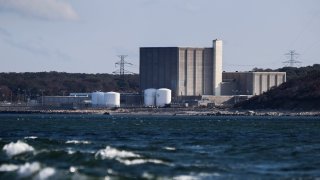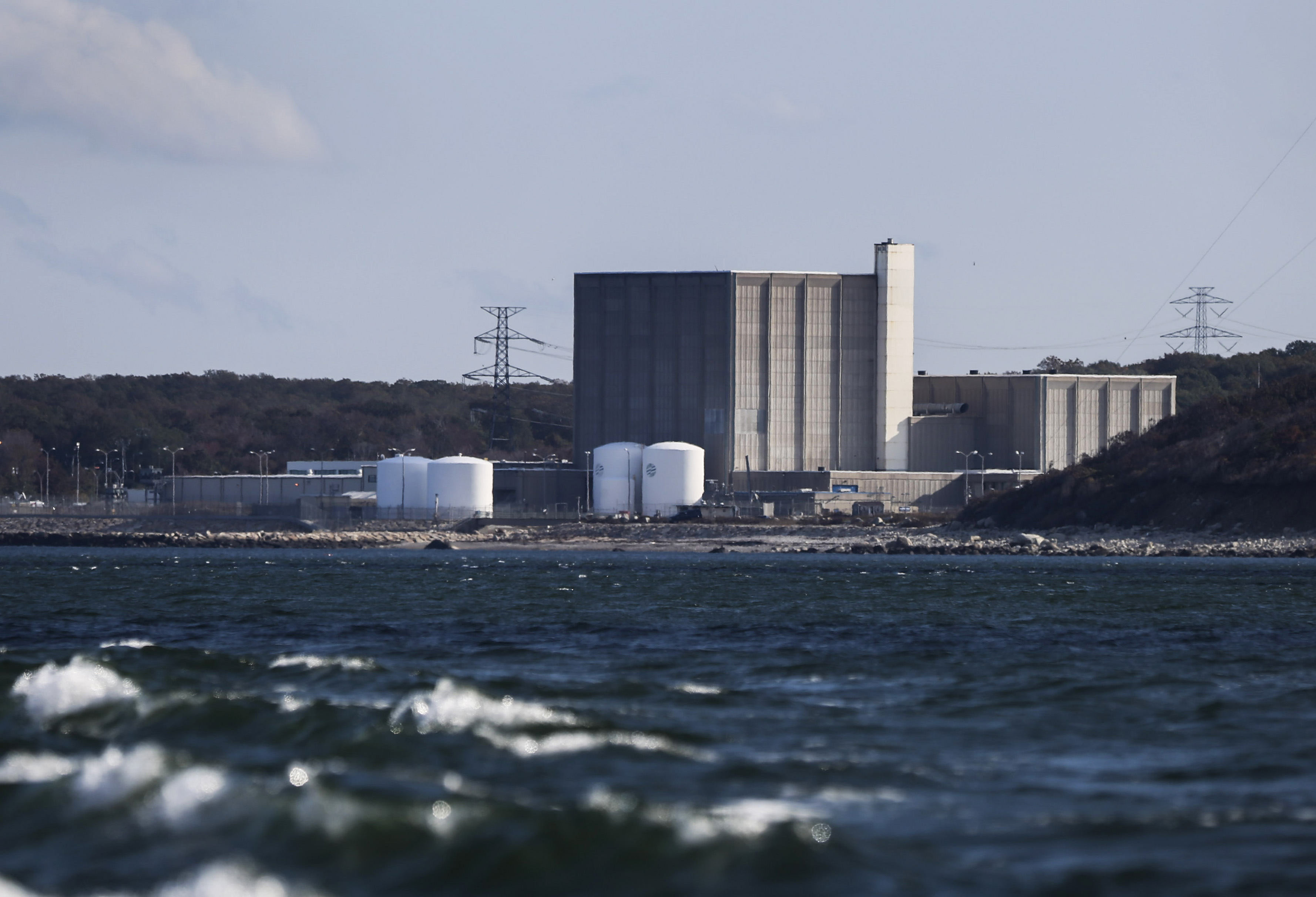
Massachusetts will need to trim down some of its monitoring work at a shuttered nuclear power plant in Plymouth unless lawmakers require the facility's owners to cover additional costs in the next few years, a top Baker administration official said Monday as public concern grows about a potential radioactive water discharge into the Cape Cod Bay.
Department of Public Health Commissioner Margret Cooke urged lawmakers to require Holtec Decommissioning International to pay additional money to fully fund radiation monitoring and emergency planning activities at the Pilgrim Nuclear Power Station, which ceased operations in 2019.
At a hearing about Gov. Charlie Baker's $48.5 billion fiscal year 2023 budget bill, Cooke pointed to an outside section imposing additional requirements on Holtec to help cover those costs.
"This will ensure that area residents and communities are safe from accidental releases of radiation that could be disturbed by excavation or other activities during the decommissioning process," Cooke said.
Get Boston local news, weather forecasts, lifestyle and entertainment stories to your inbox. Sign up for NBC Boston’s newsletters.
The state is required to conduct regular monitoring and testing at the location throughout the decommissioning process, which Holtec expects it can complete by the end of 2027. However, Cooke said the amount of money the company is required to pay to support those activities decreases as the company achieves milestones along the way, which could leave DPH facing a funding shortfall between $160,000 and $450,000 annually until 2027.
Cooke stressed that the department has enough money right now to continue monitoring air, water and soil around the inactive nuclear facility, but the outlook will become more strained down the line unless lawmakers act.
"Without that ability to recover additional costs, DPH will likely have to significantly scale back air monitoring and environmental sampling throughout the decommissioning process," Cooke told the Joint Ways and Means Committee. "DPH may also have to close or significantly scale back the operation of the statewide environmental monitoring laboratory."
Holtec recently finalized a treatment and disposal plan for millions of gallons of radioactive water in the system, an issue that has drawn scrutiny from lawmakers concerned about discharge into Cape Cod Bay.
Lawmakers wrote to the Judiciary Committee last month in support of legislation (H 4444) that would define any such move as a release under the Oil and Hazardous Material Release Prevention and Response Act and strengthen both state and private rights of action in response to any damages caused.
A coalition of activists including representatives from the Massachusetts Seafood Collaborative and the League of Women Voters Plymouth Area plan a protest walk on Saturday to voice opposition to the potential discharge plan.


